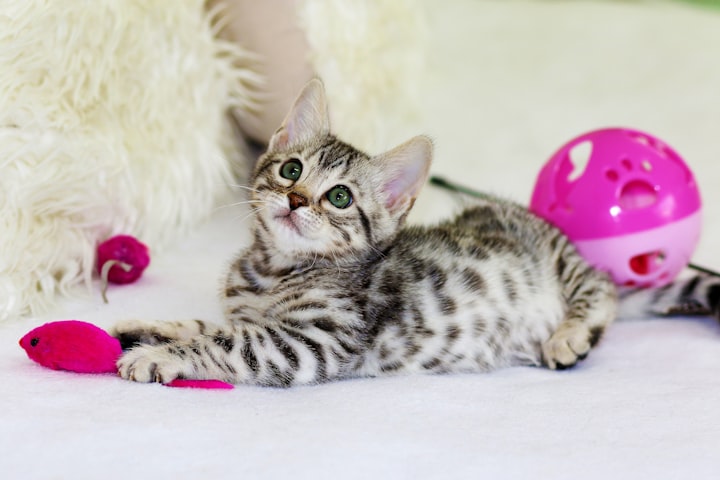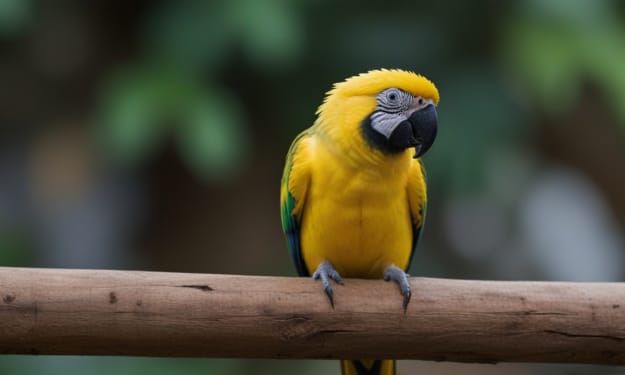Have food and drink but the cat is not happy?
5 moves to teach you how to make cats happy?

The length of a cat's life is directly proportional to its mental health, and a chronically unhappy cat will hardly live more than 10 years.
Even if this cat is eating imported cat food and drinking triple-filtered flowing water, it is unhappy and still does not live long.
A study by the Japanese Feline Research Institute found that cats heal 20% faster when they are in a happy mood than when they are in a depressed mood. Cats with good mental health have a much lower chance of developing feline cancer and feline blood disorders.
For those who want their cats to live at least until their theoretical life expectancy (10-14 years), it is important to care for their cats' mental health, and learning a set of "effective and efficient cat coaxing strategies" is a must for meowing cats.
Good food and drink, but not necessarily happy cats
Why are cats unhappy even though they eat and drink well?
Some of the findings that seem to differ from common knowledge have become the focus of zoological research in recent years.
1. Domesticated cats are psychologically vulnerable precisely because of the lack of "crisis": this study first appeared in wolves in zoos - wolves fed in zoos without any food pressure or hostile animals, yet the general mental health of these wolves is extremely poor. After considerable observation and data analysis, people began to realize in the last century that captive animals were deprived of opportunities to learn and exercise due to the lack of "external stimuli that are beneficial to the animals. For cats, an accidental fall from a slightly high tree may not hurt the cat, but will give the cat a learning opportunity; or encounter a weasel, smelled by its smell, this "adventure-like crisis full of small surprises" for the cat is a kind of fun.
2. Too much inertia in the living environment, so that the cat's perception of the outside world is reduced: we all know that the cat's living environment of drastic changes (such as moving) may cause psychological stress for the cat. But in reality, an excessively static environment is also unhealthy for cats. For example, some cats live in a fixed house for years, eating, drinking, and sleeping in a fixed space, especially those cats that have been kept in captivity since they were kittens. Their ability to perceive, learn and summarize the outside world is much worse than that of similar free-range cats and cats in the wild.
3. Lack of hunting opportunities and obvious weakening of the muscles: domestic cats, whether fed with cat food or raw meat and bones, in most cases have few hunting opportunities throughout their lives. However, the findings of feline studies in recent years show that hunting is a central process in the psychological construction of cats - almost all feline experiences, character, and intelligence come from hunting. Tigers - the top felines - will begin to reduce the number of cubs waiting to be fed by the time their children are 10 months old, and almost all tigers have full hunting ability by the time they are one year old. In the clinical practice of veterinary medicine, those cats that are free-ranging rarely get depression because most free-ranging cats will have hunting experiences outside the home. For purely domesticated cats, the shortage of hunting opportunities is a relatively large regret in psychological construction.
Hunting is the most important mental and physical building opportunity for cats
However, you should never directly put a purely domestic cat into the wild or risk introducing live animals into your home for your cat to have a hunting experience. The reason is that cats learn to hunt fundamentally from their mothers' education as kittens. Most of today's domestic cats have already been integrated into human families as youngsters, and it is not feasible for domestic cats to revert to relying on live animals for hunting to have a healthy mentality.
Games, playing games with cats, is the way out of the problem.

Here, we share five often-overlooked game tricks to make it easy to make cats happy:
1. Give the cat a box: any cat, can play with a cardboard box for a long time, especially if you can fit it into the size of a cardboard box. This is related to the natural state of the cat's natural interest in wild holes and grass potholes. Choose a hygienic carton and let your cat play carton games once a week and it will be very happy.
The box that can make all cats happy
2. Give it a chance to climb: Giving your cat a high place is a great way to keep it happy. The most ideal resting place for cats is the highest and most open area with the highest view of the whole situation, and this place is even better if it is more secluded. Give your cat something to climb on and set up a high spot for it to nest in.
3. Simulate hunting, and moving sound things: Many people buy toys for cats, but cats do not play. The key is that this toy may not be able to make a sound. A really good cat toy is very simple - a bell wrapped in a ball of socks or wool, and the cat can play happily.
4. Interact more with your cat and touch: If you want to keep your cat happy, you better take time out of your day to touch your cat for real, not just with a comb, but with your warm hand. Cats feel differently about touches that have body heat. The back of the cat and the top of the head is perfect for the owner to gently touch, which is more similar to what a mother cat does to her kittens, and the cat will be very happy with this interaction.
5. Searching game: Cats love to search, you can show them what they like, and then pretend to hide in front of them in a "hidden" place, cats will be happy to play this game. This comes from the cat's instinct to follow a young animal, then hide and attack it when it is not expecting it. If conditions allow, you can often play this search game with your cat, who will be extremely happy.
Cats instinctively enjoy games related to "sneaking", "finding" and "hiding".
Many domestic cats today are fully domesticated, and without the opportunity to go out in the open, cat owners need to design more games to let their cats feel the "wild fun" at home.
More games with cats will greatly improve their mental health and keep them happy, and you will become a master of coaxing and teasing them.
About the Creator
Diane Dora
man may lead a horse to the water, but he cannot make it drink.






Comments
There are no comments for this story
Be the first to respond and start the conversation.